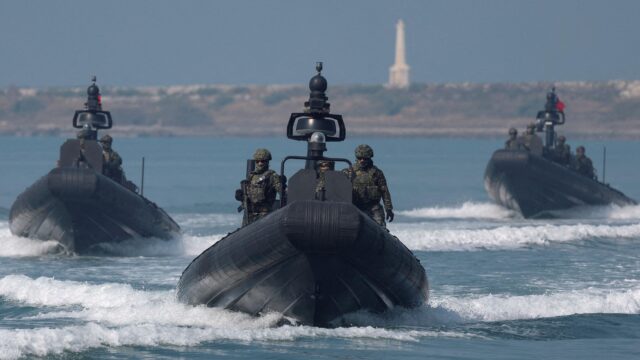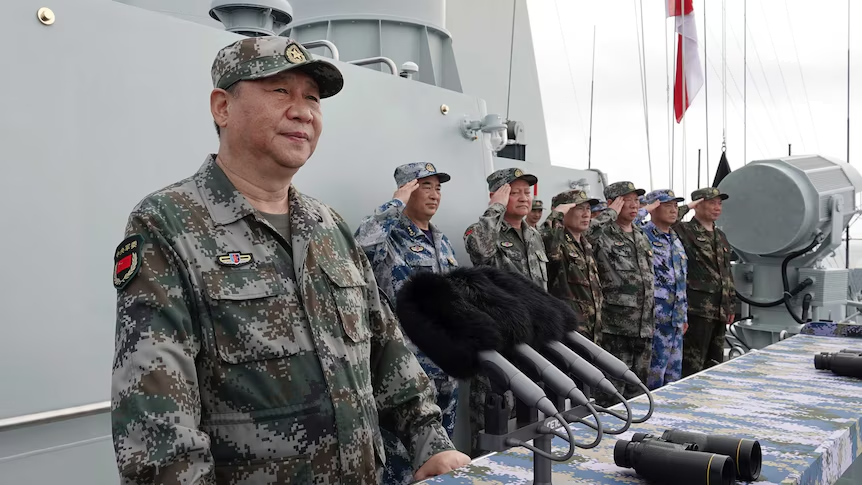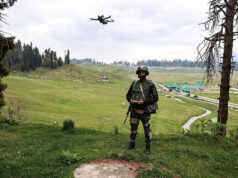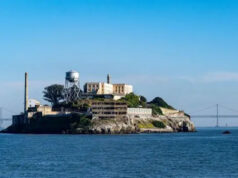
China has launched large-scale military drills encircling Taiwan, deploying naval vessels, aircraft, and rocket units in what Beijing calls a “stern warning” against Taiwan’s pro-independence stance. The exercises, which began this week, have heightened regional tensions and drawn sharp criticism from Taiwanese officials.

China’s Military Maneuvers: A Display of Strength
According to China’s Eastern Theater Command, the drills aim to enhance combat readiness and simulate assaults on maritime targets. A total of 19 warships, fighter jets, and long-range missile units have been mobilized in a show of military superiority, effectively surrounding the self-ruled island.
Beijing claims these exercises are necessary to deter what it sees as “separatist forces” seeking Taiwan’s independence. China maintains that Taiwan is part of its territory and has not ruled out the use of force to bring the island under its control.
Taiwan’s Response: Defiance and Defense
Taiwanese Defense Minister Wellington Koo has condemned China’s actions, labeling them a threat to regional peace and stability. In response, Taiwan has deployed its own warships, fighter jets, and missile systems to closely monitor Chinese movements. The defense ministry has assured the public that Taiwan is prepared to defend itself against any provocation.
Taiwan’s government has also reiterated its commitment to maintaining the island’s sovereignty, despite increasing pressure from Beijing. President Lai Ching-te has emphasized Taiwan’s right to self-governance and vowed to strengthen national defense in the face of growing military threats.
Propaganda and Psychological Warfare
In addition to military pressure, China has launched a propaganda campaign targeting Taiwan’s leadership. A video circulated by Chinese state media labeled Taiwan’s President Lai Ching-te a “parasite,” an attempt to discredit his administration. Taiwan swiftly denounced the video, calling it an example of China’s psychological warfare tactics.
This latest development follows a pattern of Beijing using both military intimidation and media propaganda to influence public perception in Taiwan. Experts suggest that China’s strategy aims to weaken Taiwan’s morale and sway public opinion against its current government.
International Reactions and U.S. Involvement
The military drills come amid growing concerns from the international community. The United States, a key ally of Taiwan, has reaffirmed its commitment to ensuring “credible deterrence” in the Taiwan Strait. U.S. officials have repeatedly warned China against escalating tensions, emphasizing that military aggression would destabilize the region.
Meanwhile, Japan and other Indo-Pacific nations have expressed concerns over China’s increasing military assertiveness. Many view Beijing’s actions as part of a broader strategy to expand its influence in the South China Sea and beyond.
What Comes Next?
China’s latest military exercises serve as a stark reminder of the ongoing tensions between Beijing and Taipei. As Taiwan strengthens its defense capabilities and China continues its pressure campaign, the possibility of further confrontations remains high.
While diplomatic efforts to ease tensions continue, the situation in the Taiwan Strait remains volatile. The world is watching closely as both sides navigate an increasingly delicate and dangerous geopolitical landscape.



